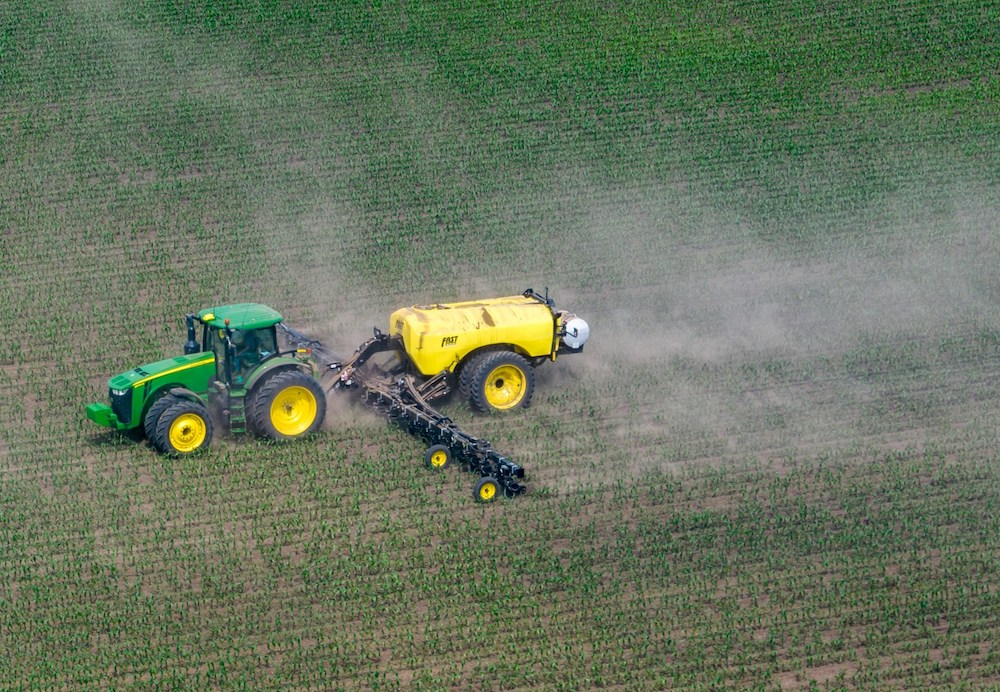
- Details
- By Chez Oxendine
- Food | Agriculture
A newly released House proposal for the 2024 Farm Bill, already eight months overdue, could create an impasse rather than move the long-delayed legislation forward.
That’s according to Agriculture Secretary Tom Vilsack, who spoke to reporters this morning following the recent release of a proposed Farm Bill from House Agriculture Committee Chair Glenn “GT” Thompson (R-Penn.) During a press call, Vilsack expressed concerns that Thompson’s proposal crossed “red lines” regarding nutrition programs and USDA credit utilization.
Thompson’s draft proposal — called the Farm, Food, and National Security Act — would freeze the cost of the Thrifty Food Plan, which funds the Supplemental Nutrition Assistance Program (SNAP). The Congressional Budget Office reports the proposal would create a $30 billion cut to the program over the next decade, Vilsack said. Thompson’s proposal would also place more disaster relief spending to help farmers in the hands of Congress, rather than at the USDA’s discretion.
Those concerns and other pain points could stop Thompson’s proposals if they manage to make it past the House Agriculture Committee, Vilsack said.
“The reality is this raises the possibility of being unable to get a Farm Bill through the process,” Vilsack said. “I’m afraid this is not designed to create a route to passage, but rather a route to impasse, which will cause further delay.”
Thompson’s proposed Farm Bill follows a previous proposal by Senator Debbie Stabenow (D-Mich.) the Rural Prosperity and Food Security Act of 2024. Vilsack said the proposals in the Senate proposal build on existing USDA priorities and provide a more likely route to passage.
The dueling bills represent a potentially partisan approach to a bill that traditionally avoids partisanship. Rep. Sharice Davids (D-Kan.), a member of the Ho-Chunk Nation who sits on the House Agriculture Committee, cautioned against such politicking in a news release last week.
“Traditionally, the reauthorization process for this bill has been broadly bipartisan ... I'm committed to keeping it that way,” Davids said. “While these negotiations can be complex — and we may not see eye-to-eye on every issue — it's essential that we come together to craft a compromise that can make it across the finish line. We cannot let politics stand in the way of our farmers' access to vital resources that support their businesses, employees, and families.”
Intertribal Agriculture Council Chief Legal and Policy Officer Abi Fain said the delay has left tribal producers waiting on potential new opportunities and programs. She pointed to impending potential policy changes on self-determination programs in forestry and food distribution as an example.
“This has taken a lot longer than I think anybody expected it to,” Fain told Tribal Business News. “We’re waiting to see how the markup for the House Agriculture Committee’s bill goes. I think there’s a lot of good things in both summaries, and we’re glad tribes are being discussed. We’re hoping to keep that momentum from the 2018 Farm Bill going.”
Yesterday, the House Committee on Agriculture distributed a news release filled with quotes offering praise and support for its proposal. There were no Native-led organizations.
Other tribal-supporting organizations were mixed on the proposals. Pittsboro, N.C.-based Rural Advancement Foundation International released a statement expressing “serious concerns” with Thompson’s proposed bill. Cuts to SNAP and reworks of Inflation Reduction Act investments in climate-focused agriculture will ultimately undercut individual producers, the organization writes.
“It is critically important that this Farm Bill aggressively addresses agriculture’s impact on the climate. A Farm Bill that does so will support more farmers more equitably,” Aaron Johnson, Policy Co-Director at RAFI, said in a statement. “These IRA investments significantly expanded the funding available within oversubscribed [conservation] programs and increased the chances that more and smaller farmers could secure a contract. The way that Rep. Thompson’s proposal re-invests this funding into this Farm Bill…will dilute the Farm Bill’s overall ability to mitigate climate change.”
The Native Farm Bill Coalition issued a statement that thanked both sides for their proposals, but noted more needs to be done for Indian Country.
"We appreciate the bipartisan efforts to ensure that measures which are important to Tribes and Native producers were included in the bill summaries; however, more could be done to address the critical needs of Indian Country in the Farm Bill,” wrote Coalition co-chairs Cole Miller and Kari Jo Lawrence. “We look forward to working with Congress to further strengthen provisions that expand Tribal self-determination and self-governance, prioritize Tribal sovereignty, promote parity, eliminate unnecessary barriers to nutrition assistance programs, and increase access to critical USDA programs.”
A highlight provided by the Coalition notes that Thompson’s proposal mentions two instances of tribe-related policy. Stabenow’s summary mentions 52, including major NFBC policy goals such as making self-determination programs for food distribution permanent.
Toward the end of today’s press call, Vilsack said he hope lawmakers would expedite the legislative process for a critical bill that is already months behind.
“I think it's necessary for us to get to a place where we can say yes sooner. This is not starting the process a year or two ago, it's starting eight months late, so you need to get with it,” Vilsack said. “That's the difference between what the House has proposed and what the Senate has proposed.”
